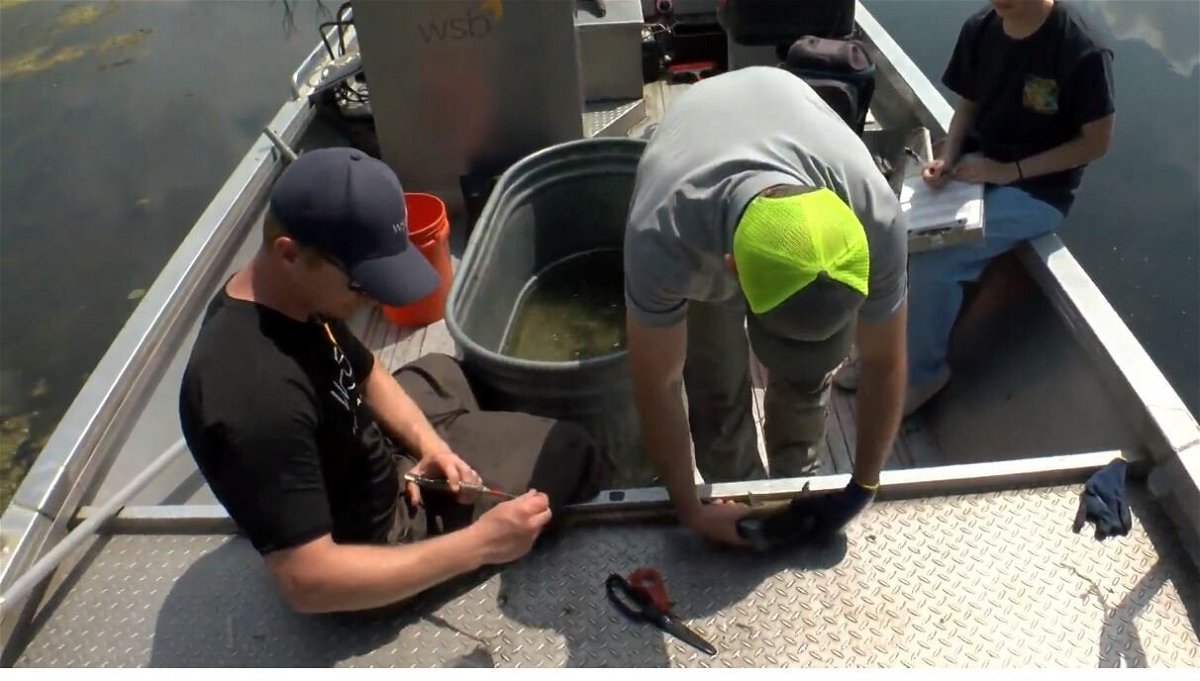Engineers try to electro shock invasive carp

There are efforts to reduce invasive fish populations on Twin Cities lakes by a process called "electro-shock."
By John Lauritsen
Click here for updates on this story
BLOOMINGTON, Minnesota (WCCO) — There are efforts to reduce invasive fish populations on Twin Cities lakes by a process called “electro-shock.”
“We were catching them by the buckets. Five-gallon buckets. We couldn’t even count them there were so many,” said Jordan Wein of WSB.
Last year, it was open season on goldfish at lakes in Chaska and Robbinsdale. The former pets had been released into the water, where they multiplied and squeezed out native fish.
This summer WSB is going after another invasive species — carp. The engineering company is trolling across Normandale Lake in Bloomington, using their electro-fishing boat to stun the fish below.
“It sends electricity in front of the boat by connecting an anode and a cathode just like a battery,” Wein said.
While Wein drives, environmental scientist Kyle Blazek uses a net to bring in the catch.
“You have a second, maybe half a second to really grab at them,” Blazek said.
It’s not just carp they’re hauling in. Catching other fish species gives them a better understanding of how healthy the lake is.
But it’s the invasive carp they’re targeting. Many are disposed of while others are tagged for tracking purposes.
“They are RFID tags, which are pretty similar to what you put into your home pet,” Wein said.
So far, the electro shock efforts used to study and reduce goldfish have worked well. Catch rates are much smaller this summer, meaning the population has declined. Wein and his crew are now hoping for similar success with carp.
“I think knocking those carp and holding them back and really keeping them from rebounding will really solidify that those water qualities are here to stay for the long term,” Wein said.
Wein said the concern with carp and goldfish is that they uproot vegetation at the bottom of lakes, which hurts native fish species.
Please note: This content carries a strict local market embargo. If you share the same market as the contributor of this article, you may not use it on any platform.